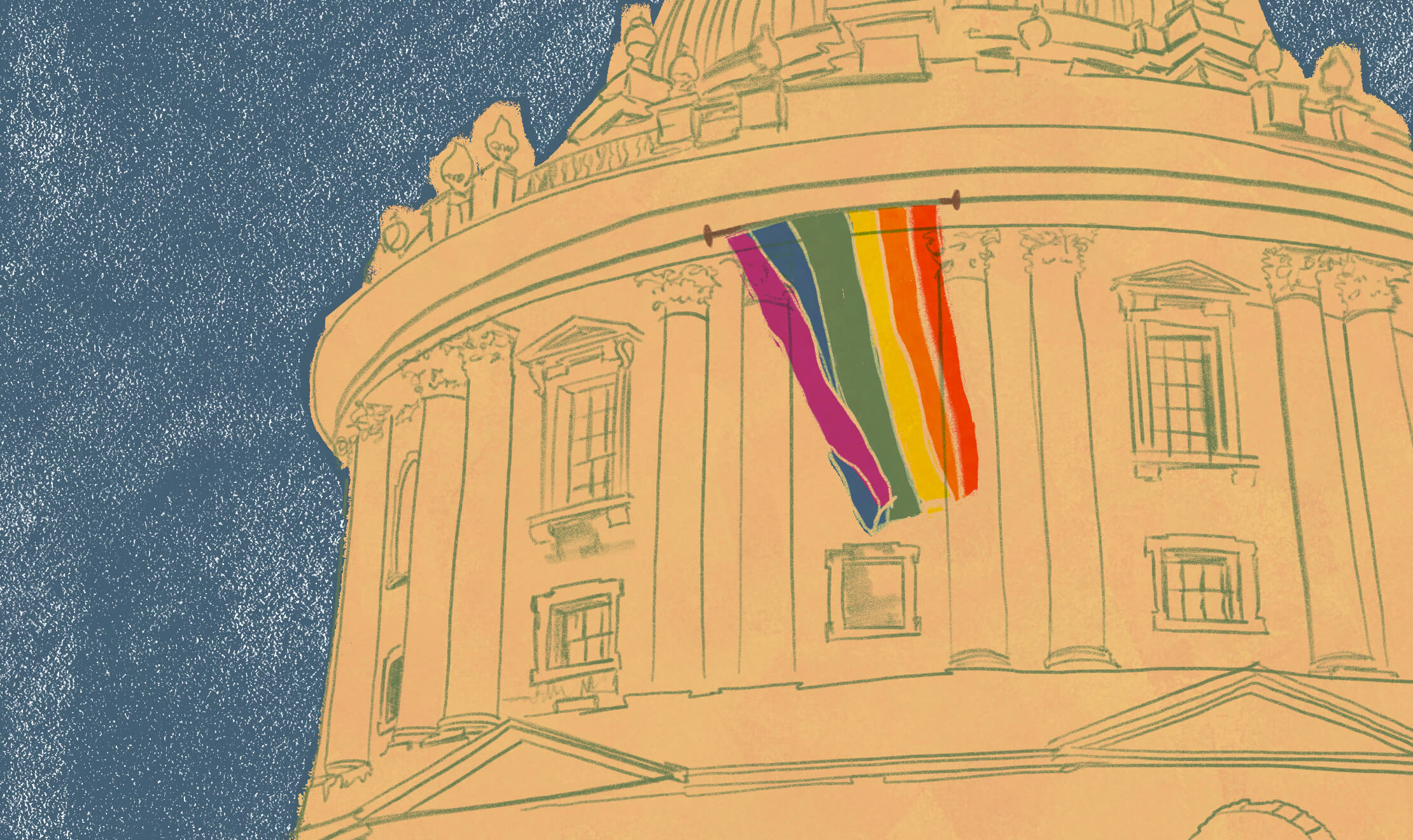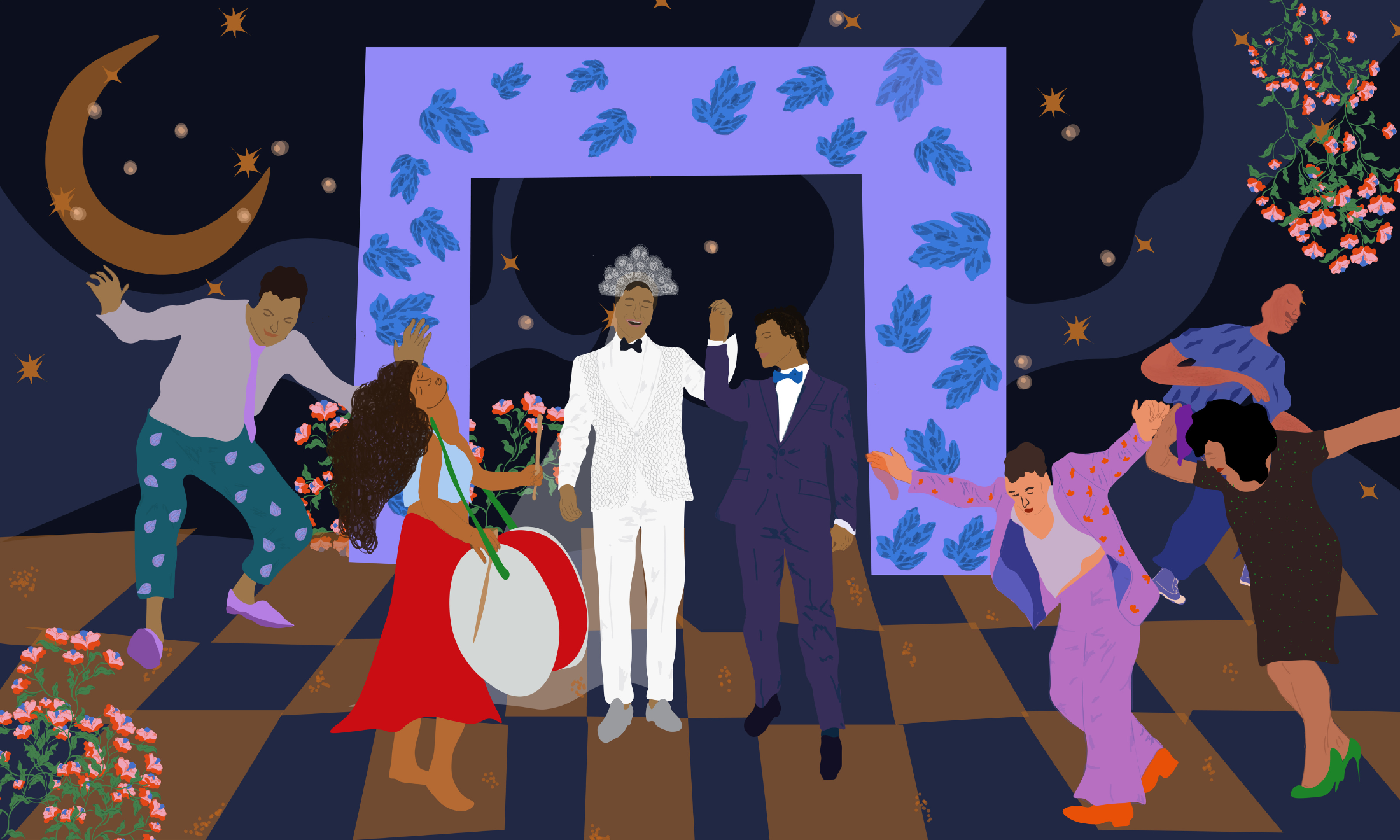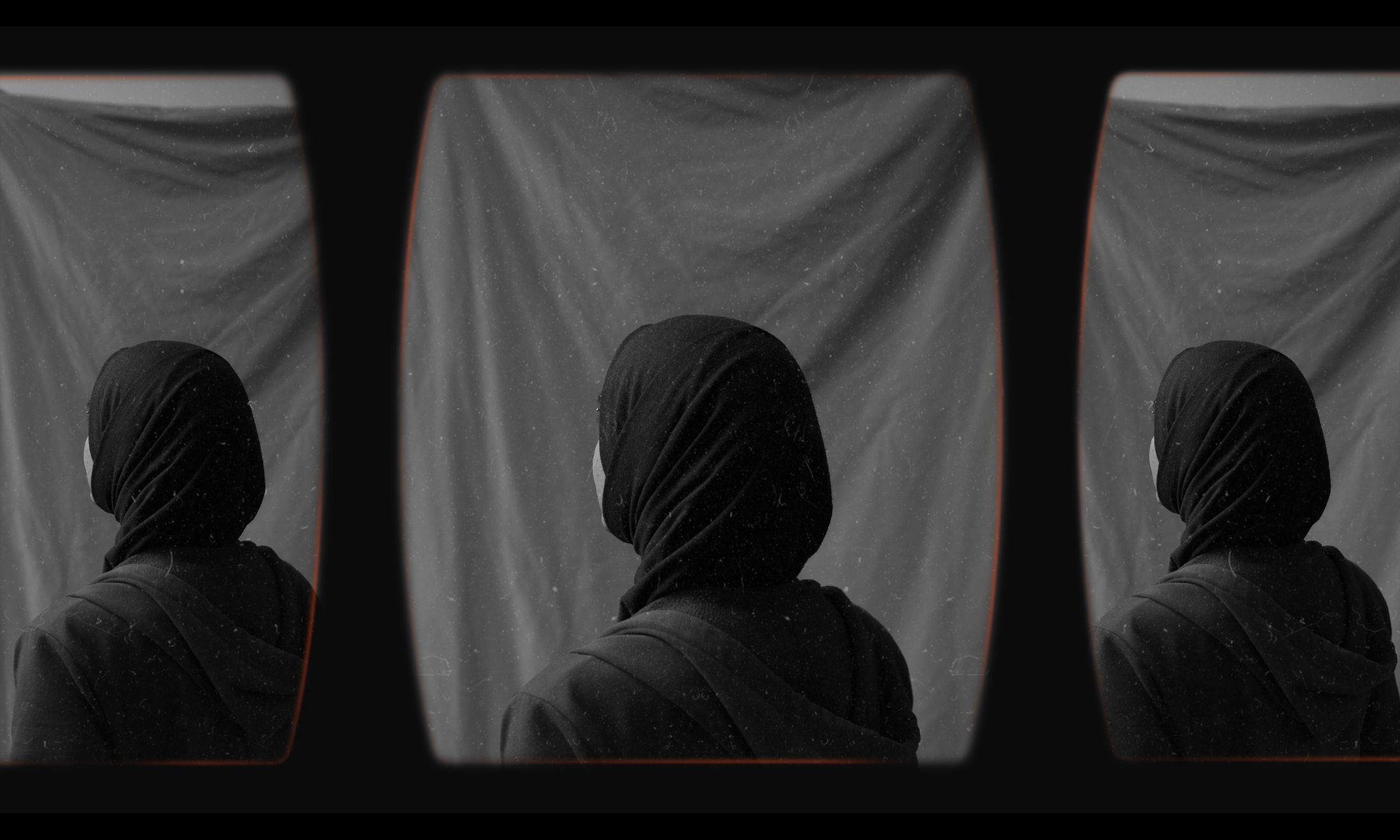An Oxford University president is fighting to roll back LGBTQ+ rights in the Caribbean. Why?
The Cayman Islands are trying to ban same-sex marriage by returning LGBT+ rights to the 1800s. Why is the president of Magdalen College representing them?
Christina Ivey
28 Oct 2021

Diyora Shadijanova
Chantelle Day is a Caymanian lawyer. She’s been with her partner Vickie Bodden-Bush, a British nurse with Caymanian heritage, for eight years. In 2014, they moved away from the Cayman Islands, “fed up of the hostile environment towards same sex couples”. First they went to Dublin, then London, but it was when they adopted their daughter that Chantelle says they decided to move back to the Cayman Islands.
“I wanted to raise her around the rest of our family. I wanted her to have a similar upbringing to the one I had, and I thought that Cayman was at that stage where people, for the most part, were very accepting,” she told Cayman Compass in a 2020 interview.
Instead, when they returned, Chantelle and her partner were made to feel like second-class citizens by the Caymanian government. The couple have now been engaged in a multi-year legal battle with the government for the right to marry.
As is the case for most other British Overseas Territories, same-sex marriages are not recognised in the Cayman Islands. The couple spent months writing to the Caymanian government, as well as the British Foreign and Commonwealth Office arguing for their right to a marriage. This was unsuccessful, and they subsequently brought legal proceedings against the government in July 2019.
On 29 March 2019, after three days in court and a further seven weeks of deliberation, Chief Justice of the Cayman Islands, Anthony Smellie ruled that it was unconstitutional to deny Chantelle and Vickie the right to marry, arguing that it was a clear violation of their right to privacy and family.
For Chantelle, marriage meant that Vickie would be able to make health decisions on her behalf, should something happen to her, and that Vickie would also be entitled to Chantelle’s estate, if the worst came to pass. It also allowed their daughter’s adoption to be recognised in Cayman, and would entitle her to Caymanian citizenship.
With this in mind, they quickly applied for a licence to marry, but the Caymanian government was quicker and moved to appeal the decision handed down by Chief Justice Smellie. The government received a stay on the original decision to legalise same-sex unions from the Court of Appeal, which barred Chantelle and Vickie from marrying just two hours before their planned ceremony on 10 April 2019. They would now have to wait months to be heard by the Court of Appeal.
In November 2019, in the case before the Court of Appeal, the Caymanian government was represented by British barrister Dinah Rose. For onlookers in the legal world, Rose’s involvement prompted confusion. Why was someone who was previously touted for her ‘compelling advocacy’ in the field of human rights taking up a case overseas that sought to strip people of their rights?
“As is the case for most other British Overseas Territories, same-sex marriages are not recognised in the Cayman Islands”
Money, it seems. Speaking to gal-dem in April 2021, international human rights lawyer Jonathan Cooper – who sadly passed away in September 2021 – said cash is one possible explanation for why she took on this brief. Others are of the same mind; Colours Caribbean, a Caymanian LGBT advocacy group, filed a Freedom of Information request with the Caymanian government which found that Rose received fees in excess of £134,000.
Regardless, Jonathan believes it was “a matter for [Dinah] and her conscience” to grapple with – right up until the moment she was appointed President of Magdalen College, at the University of Oxford in March 2020. Her appointment to the post gave her duties of pastoral care to the nearly six hundred students of Magdalen College, including LGBTQ students who would undoubtedly feel distressed that the head of their college was fighting in a British colonial territory to roll back the rights of people like them.
“She just should have just said to the Caymanian government, “I can no longer act for you” and if she felt that she couldn’t do that, she should have referred herself to the bar council.” Jonathan says.
Chantelle and Vickie’s appeal is now before the Privy Council in London, equivalent to the UK Supreme Court for several Commonwealth countries, crown dependencies and UK overseas territories. There, a panel of mostly white, English judges will go on to decide their future as a couple and as a family.
If Rose wins the case on behalf of the Caymanian government, it could set a precedent that will not only roll back LGBTQ rights in Cayman back to the “1800s”, explains Jonathan, but also potentially spell disaster for other jurisdictions. The Privy Council is not only the highest court of appeal for UK overseas territories, but also for several independent Commonwealth Caribbean countries like Jamaica and The Bahamas.
This means a ruling in favour of the Caymanian government would “be the apex court of the common law world saying it’s okay to discriminate against LGBTQ people,” explains Jonathan. It would allow the twenty five other jurisdictions served by the Privy Council to enact similar discriminatory bans on same-sex marriage and make these bans much harder to overturn.
“[Dinah Rose] just should have just said to the Caymanian government, ‘I can no longer act for you’ and if she felt that she couldn’t do that, she should have referred herself to the bar council”
News of Dinah Rose’s involvement in this case did not go over smoothly in Oxford. Edwin Cameron, a former judge of the South African Constitutional Court and Oxford alumnus, called her involvement “a stain on the college” which “actively reinforces the continuum of violence against LGBTQI people throughout the Caribbean”.
A change.org petition calling for her to drop the case or resign from her post as President was circulated by the Oxford University LGBTQ+ Society, and gained over 500 signatories. The Oxford University African Caribbean Society also published a statement condemning Ms Rose’s involvement, noting how the legal proceedings hurt LGBTQ+ people of colour in particular.
“Dinah Rose cannot in good faith help to set back LGBT laws in a Caribbean island and simultaneously claim to support LGBTQ+ and BAME students in Magdalen,” the statement read. “The intersectionality of this problem is even more important given the disproportionate risk of violence queer people of colour face, especially Black people.”
Responding to the mounting outcry, Magdalen College Junior Common Room (JCR), held a General Meeting on 31 January to address Ms Rose’s presidency. In preparation for this, Rose held a “dubious” Q&A session; according to Oxford University LGBTQ+ Society, students were invited to send her questions 24 hours in advance and discussion of the session itself was prohibited outside of the college.
During the session, OULGBTQ+ claims Rose left students with the impression that she had no choice but to take on this Cayman case and continue with her work on it, even after her appointment as Magdalen president. Per OULGBTQ+, Rose attributed this to the UK’s ‘cab rank’ rule, which means any barrister “if free” is “obliged to take any appropriate case”.
The cab rank exists to ensure access to justice, even for unpopular clients, like sex offenders. Crucially though, critics say it only applies in England and Wales, and not British Overseas Territories – like Cayman Islands. Beyond that, the ethical conflict between the nature of the case and her duties as president would have been a suitable reason for her to withdraw, as British barrister David Perry did from a case against Hong Kong protesters earlier this year.
In the subsequent Magdalen College JCR General Meeting, described by one of Oxford’s student papers as “extremely well-attended”, a motion was passed with the support of 85% of those present to “put out an affirmation of support for Dinah Rose in her role as president” among other measures.
This was a far cry from the original draft motion put forward, which called for Rose “to donate the fees she is awarded for her role in the case to a cause supporting LGBTQ+ people and rights in the Cayman Islands,” as well for investigation into “whether the [Oxford University’s] Governing Body knew the specific details of her case and whether they had discussed if her appointment and her ongoing case conflicted with each other, given her obligations to follow Magdalen’s Equality Policy.”
“The cab rank exists to ensure access to justice. Crucially though, critics say it only applies in England and Wales, and not British Overseas Territories – like Cayman Islands”
Magdalen College’s Equality Policy follows from the Equality Act 2010, and “aims to provide an inclusive environment which […] maintains a working, learning and social environment in which the rights and dignity of all its staff and students are respected”.
Claire Nash, president of the Oxford University LGBTQ+ Society, tells gal-dem she feels Ms. Rose “essentially, in that meeting, relied on students’ lack of knowledge of the law.
“I think the cherry on top of that cake, if you will, was Dinah taking that vote and using it as a sign that everything was over, that she’d got the support of the student body,” Claire adds.
Savannah Stanislaus, a Racial and Ethnic Minority representative for the Oxford University LGBTQ+ Society, says that the JCR General Meeting, a gathering of mostly white, straight students, should have never been the forum to resolve such an issue. She notes the conversation surrounding Dinah Rose’s involvement in this case has been “coded in racism because people don’t often acknowledge the colonial origins of this problem”.
“Even typically white LGBT people who obviously are in support of LGBT rights, the way in which they’re engaging in the conversation … comes from a place of as if they are superior”, she added.
Students say that Rose has continued to misconstrue the harm caused by her involvement in this case, by claiming that the Cayman Islands was already one of the most progressive countries for LGBT rights in the Caribbean. According to Billie Bryan, founder and president of Colours Caribbean, that statement “couldn’t be more wrong”. She says LGBTQ+ Caymanians have faced death threats as well as barriers to legal representation. Members of the Caymanian Legislative Assembly also have openly argued for the clandestine deportation of Chantelle and Vickie’s legal counsel, Leonardo Raznovich, calling for him to be separated from his family in the middle of the night. Colours Caribbean has sent several letters and emails in attempts to communicate with Rose directly, but they have yet to receive any response.
“Even when the UK is part of arguably ‘positive’ change for Cayman, autonomy and agency is stripped from them, say residents”
While there are Caymanian legislators who support of same-sex unions, among many of them there was an underlying belief that it was only a matter of time before the UK intervened allow same-sex partnerships anyway. The spectre of Westminster, thousands of miles away, weighs heavily. For “better or worse”, says Billie, in Cayman there is a “mentality of the white superpower reigning over us and having all this control and all this influence”. It results in, she says, a sort of “colonial paranoia”.
The feeling is justified; Billie adds it was the result of the UK government “stepping in and forcing the governor’s hand” in September 2020 that saw Cayman introduce civil partnership legislation which allows for same sex partnerships. But even when the UK is part of arguably ‘positive’ change for Cayman, autonomy and agency is stripped from them, say residents.
Public conception of the Cayman Islands in the UK sees them mostly as a destination for a tropical vacation, or a favoured hideout for wealthy tax evaders. This case, say critics, is yet another feature of the unequal status of British Overseas Territories. Dinah Rose and other non-Caymanian barristers are arguing on behalf of the Caymanian government in a trial taking place far removed from the islands.
The fate of Vickie and Chantelle, Caymanian residents, will be decided by outsiders to their society. Campaigners point to it as a stark reminder of the continued shadow of colonialism that hangs over the people living in territories. Many in mainland Britain are unaware of the dregs of the empire.
Chantelle and Vickie’s legal counsel, Leonardo Raznovich, is hoping the Privy Council will come to a decision this month when they return from their summer recess. In June, the Oxford University LGBTQ+ Society held a virtual Pride Month event with Chantelle as a speaker, in an effort to bring attention to the human cost of Dinah Rose’s actions. Since the start of the new academic year, OULGBTQ+ has also produced a report examining whether colleges had adequate equality policies that would require college heads’ external actions to align with their duties towards their students. The report found that only one college had policies to this effect. Back in Cayman, Billie continues to be met with silence from Rose.
“She still has yet to say anything to us as an organisation or us, as far as I know, as a people on the Cayman islands, you know?” she says.
“Not even so much as ‘I’m sorry I got it wrong’ or ‘I’m sorry’. Nothing, no response at all. She’s only speaking to those that are, I suppose, she deems as equal or worthy to reply to, which just adds insult to injury. I find the whole thing to be despicable.”
Dinah Rose was approached for comment for this story but did not respond.

Against the binary: finding home in my intergenerational queer family

‘The day Ghana’s anti-LGBTQI+ bill is passed, I will be in jail’

LGBTQI+ people are at the forefront of Iran’s revolution



